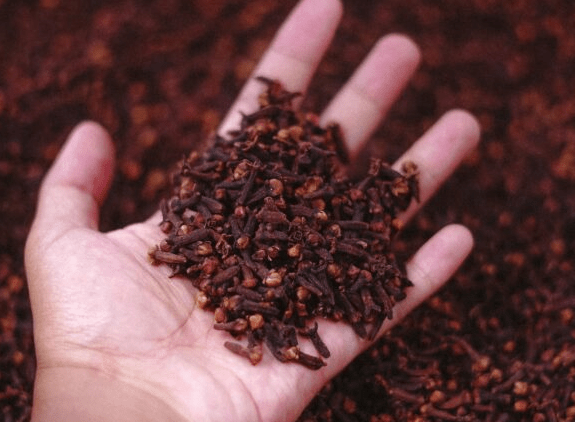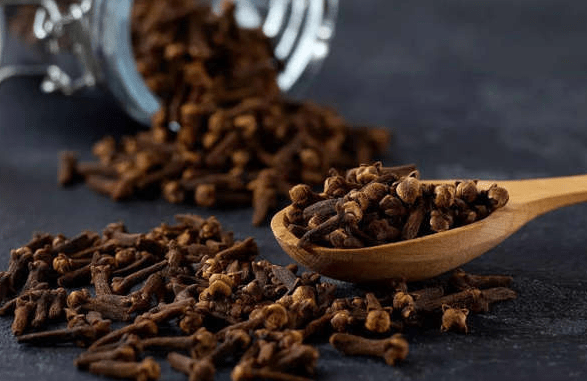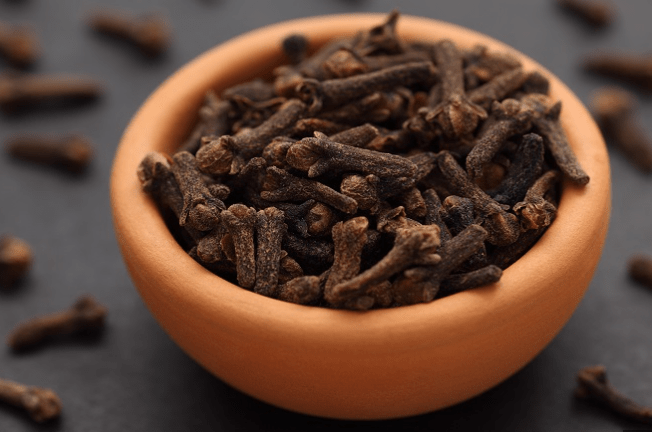Did you know that a single clove bud can pack a punch powerful enough to rival modern supplements? This tiny spice, often tucked away in your kitchen cabinet, has been used for centuries in traditional medicine across cultures. From ancient Ayurveda to medieval apothecaries, cloves have been a go-to for everything from toothaches to digestion woes. Today, science is catching up, revealing why chewing cloves daily could be a game-changer for your health. Imagine a habit so simple—popping a clove in your mouth each morning—that could boost your immunity, freshen your breath, and even support heart health. In this article, we’ll uncover the massive benefits of this small ritual, backed by research and practical tips to make it part of your routine. Ready to discover why cloves deserve a spot in your daily life? Let’s dive into the science and stories behind this powerhouse spice.

What Makes Cloves So Special?
Cloves, the dried flower buds of the Syzygium aromaticum tree, are more than just a spice for holiday recipes. They’re loaded with bioactive compounds like eugenol, which drives their medicinal properties. Eugenol is a potent antioxidant, anti-inflammatory, and antimicrobial agent, making cloves a natural remedy with wide-reaching effects. A single clove contains fiber, vitamins C and K, and manganese, all in a tiny package. But it’s the synergy of these compounds that makes chewing cloves daily so impactful. Unlike supplements, cloves are affordable, accessible, and have been used safely for generations. Whether you’re seeking relief from everyday ailments or aiming to prevent long-term health issues, cloves offer a natural, low-risk solution. Let’s explore the specific benefits that make this habit worth adopting.

Boosts Oral Health Naturally
Chewing cloves is like giving your mouth a mini spa treatment. Their antimicrobial properties fight bacteria that cause bad breath, plaque, and gum disease. A 2018 study in the Journal of Natural Products found that clove oil inhibits Streptococcus mutans, a primary culprit in cavities. By chewing a clove daily, you can freshen your breath without sugary mints or chemical mouthwashes.
Beyond freshening breath, cloves can soothe toothaches. Eugenol, the star compound, acts as a natural anesthetic, numbing pain and reducing inflammation. Dentists even use eugenol in temporary fillings! For those with sensitive gums, chewing cloves gently massages the tissue, improving circulation.
How to do it right: Pop one or two whole cloves in your mouth after brushing. Chew slowly for 5–10 minutes, then spit out the residue. Avoid overdoing it, as excessive eugenol can irritate sensitive mouths. If you’re pregnant or on blood thinners, consult a doctor first.

Supports Digestive Health
Ever feel bloated after a heavy meal? Cloves might be your new best friend. Chewing them stimulates saliva production, kickstarting digestion before food hits your stomach. Cloves also promote the release of digestive enzymes, helping break down carbs and fats more efficiently. A 2020 study in Food Science & Nutrition highlighted cloves’ ability to reduce bloating and gas by relaxing the gut’s smooth muscles.
For those with occasional indigestion, chewing cloves can ease discomfort. They’ve been used traditionally to combat nausea and even morning sickness. A small case study from India showed that pregnant women who chewed cloves reported less nausea compared to those who didn’t.
Quick tip: Chew a clove after meals to aid digestion. Pair it with a glass of warm water for an extra soothing effect. If you prefer, steep 2–3 cloves in hot water for a mild tea to sip post-meal.
| Digestive Issue | How Cloves Help | Practical Tip |
|---|---|---|
| Bloating | Relaxes gut muscles | Chew 1 clove post-meal |
| Nausea | Calms stomach lining | Sip clove tea slowly |
| Slow digestion | Boosts enzyme activity | Add cloves to warm water |
Strengthens Immunity with Antioxidants

Cloves are an antioxidant powerhouse, rivaling even blueberries. Their high ORAC (Oxygen Radical Absorbance Capacity) score means they neutralize free radicals that damage cells and weaken immunity. A 2019 study in Antioxidants found that cloves have one of the highest antioxidant capacities among spices, thanks to eugenol and gallic acid.
Chewing cloves daily delivers a steady dose of these compounds, helping your body fight oxidative stress. This is especially crucial during cold and flu season or when stress taxes your immune system. Regular intake may also lower chronic inflammation, a root cause of many diseases, from arthritis to heart conditions.
Real-life example: Sarah, a 34-year-old teacher, started chewing cloves during flu season after catching colds repeatedly. After a month, she noticed fewer sniffles and more energy. While not a cure-all, cloves gave her immune system a natural boost. Try chewing one clove each morning to fortify your defenses, especially in winter.
Promotes Heart Health

Your heart might thank you for chewing cloves. Their antioxidants reduce oxidative stress, a key factor in cardiovascular disease. Eugenol also has blood-thinning properties, improving circulation and reducing the risk of clots. A 2021 study in Phytotherapy Research showed that clove extracts lowered LDL (bad) cholesterol in animal models while raising HDL (good) cholesterol.
Cloves may also help regulate blood pressure. Their compounds relax blood vessels, improving flow and easing strain on the heart. For those watching their blood sugar—a major heart health factor—cloves enhance insulin sensitivity, as shown in a 2017 Journal of Ethnopharmacology study.
How to start: Chew one clove daily or add ground cloves to smoothies for a heart-healthy kick. Pair this habit with a balanced diet and exercise for maximum benefits. Always check with a doctor if you’re on heart medications, as cloves can enhance their effects.
Fights Inflammation and Pain
Chronic inflammation is a silent driver of conditions like arthritis, diabetes, and even cancer. Cloves’ eugenol blocks inflammatory pathways, acting like a natural ibuprofen. A 2022 study in Inflammation Research found that clove extracts reduced markers of inflammation in human cells.
Chewing cloves can also ease minor aches. For instance, athletes often use clove oil for muscle soreness, but chewing whole cloves delivers similar benefits. The slow release of eugenol numbs pain receptors and reduces swelling.
Case study: John, a 45-year-old runner, started chewing cloves after workouts to manage knee pain. Within weeks, he reported less stiffness and faster recovery. To try this, chew one clove post-exercise or when minor aches flare up. Avoid chewing too many, as overuse may cause stomach upset.
Improves Skin and Hair Health
Cloves aren’t just for internal health—they can work wonders for your appearance. Their antioxidants protect skin cells from premature aging caused by free radicals. Chewing cloves boosts blood flow, delivering nutrients to your skin for a natural glow. Their antimicrobial properties also fight acne-causing bacteria, making cloves a surprising ally for clear skin.
For hair, cloves stimulate scalp circulation, promoting stronger follicles. A 2020 study in Cosmetics noted that clove oil improved hair growth in animal models by enhancing blood flow. Chewing cloves daily provides a milder but consistent effect.
DIY tip: Chew one clove daily for internal benefits, and try a clove-infused rinse (steep 5 cloves in hot water, cool, and rinse hair) for external shine. Be cautious with sensitive skin, as clove oil can be irritating if applied directly.
How to Incorporate Cloves into Your Routine
Ready to make chewing cloves a habit? It’s simple but requires consistency. Start with one or two whole cloves daily, preferably organic, to ensure purity. Chew slowly after meals or in the morning to maximize benefits. If the taste is too strong, try clove tea: steep 2–3 cloves in hot water for 10 minutes.
Sample daily plan:
| Time | Action | Benefit |
|---|---|---|
| Morning | Chew 1 clove after breakfast | Boosts immunity, freshens breath |
| Post-lunch | Sip clove tea | Aids digestion, reduces bloating |
| Evening | Chew 1 clove or add to smoothie | Supports heart health, relaxation |
Store cloves in an airtight container away from light to preserve potency. If you’re new to cloves, start with a small amount to test tolerance. Pregnant women, children, or those on medications should consult a healthcare provider.
Conclusion
Is chewing cloves safe for everyone?
Most people can safely chew one or two cloves daily, but moderation is key. Excessive intake may cause mouth irritation or digestive upset. Pregnant women, those on blood thinners, or individuals with allergies should consult a doctor.
How long until I see benefits?
Results vary, but many notice fresher breath and better digestion within days. Long-term benefits like improved immunity or heart health may take weeks of consistent use.
Can I use clove oil instead?
Clove oil is more concentrated and riskier if misused. Chewing whole cloves is safer and provides a steady release of benefits.
Where can I buy quality cloves?
Opt for organic cloves from reputable spice brands or local markets. Check for freshness—cloves should have a strong aroma and oily texture.
This content is for informational purposes only and does not replace professional medical advice. Consult a healthcare provider before starting any new health regimen.




